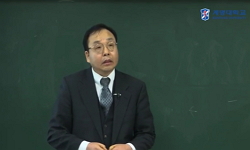본 논문은 서구의 회복탄력성 개념이 대만과 중국 학계, 특히 사회생태계 (Social-Ecological Systems, SESs) 분야에서 어떻게 전파되고 적용되었는지를 탐구 한다. 에드워드 사이드의 ‘여행하는 이...
http://chineseinput.net/에서 pinyin(병음)방식으로 중국어를 변환할 수 있습니다.
변환된 중국어를 복사하여 사용하시면 됩니다.
- 中文 을 입력하시려면 zhongwen을 입력하시고 space를누르시면됩니다.
- 北京 을 입력하시려면 beijing을 입력하시고 space를 누르시면 됩니다.
https://www.riss.kr/link?id=A109468724
- 저자
- 발행기관
- 학술지명
- 권호사항
-
발행연도
2024
-
작성언어
English
-
주제어
회복탄력성 ; 여행 이론 ; 학문적 세습 ; 대만 ; 중국 ; Resilience ; Traveling theory ; Academic hegemony ; Taiwan ; China
-
KDC
300
-
자료형태
학술저널
-
수록면
151-177(27쪽)
- 제공처
-
0
상세조회 -
0
다운로드
부가정보
국문 초록 (Abstract)
본 논문은 서구의 회복탄력성 개념이 대만과 중국 학계, 특히 사회생태계 (Social-Ecological Systems, SESs) 분야에서 어떻게 전파되고 적용되었는지를 탐구 한다. 에드워드 사이드의 ‘여행하는 이론’을 바탕으로, 서구에서 동아시아로 전파 된 회복탄력성 개념이 저항 없이 수용된 과정을 분석한다. 대만과 중국의 학술 문헌에 대한 비교 분석을 통해 회복탄력성에 대한 공통된 접근법과 상이한 접근법 을 확인했다. 대만은 주로 지수 기반 평가를 사용하는 반면, 중국은 수리 모델링에 중점을 두는 경향이 있음을 분석했다. 이러한 차이는 회복탄력성이 각 지역 담론에 통합되는 방식의 차이를 강조한다. 또한, 본 논문은 학문적 헤게모니와 서구 학문을 배운 학자들이 동아시아 학계에서 회복탄력성 연구를 형성하는 데 미친 영향을 고찰한다. 연구 결과, 두 지역에서 회복탄력성이 광범위하게 수용되고 있지만, 이 개념이 이론적 사고 과정을 잃고 기계적 도구로 변질될 위험이 있음을 확인할 수 있었다. 본 연구는 회복탄력성을 동아시아 맥락에 맞게 적응시키기 위한 지역화된 틀의 필요성을 제안하며, 이는 서구와 동양의 학문적 관점을 연결하는 역할을 할 수 있으리라 기대한다.
다국어 초록 (Multilingual Abstract)
This paper explores the dissemination and application of the Western concept of resilience within Taiwanese and Chinese academia, particularly in the field of social-ecological systems (SESs). Drawing on Edward Said’s “traveling theory,” it exam...
This paper explores the dissemination and application of the Western concept of resilience within Taiwanese and Chinese academia, particularly in the field of social-ecological systems (SESs). Drawing on Edward Said’s “traveling theory,” it examines how resilience as a concept has travelled from Western to Eastern contexts, highlighting the lack of resistance encountered in this transition. Through a comparative analysis of academic literature from Taiwan and China, the study identifies shared and divergent approaches to resilience, noting Taiwan’s tendency towards index-based evaluations and China’s focus on mathematical modelling. This difference underscores the distinct ways resilience is integrated into local discourse. Additionally, the paper considers the impact of academic hegemony and the influence of Western-trained scholars on shaping resilience research in Eastern academia. Findings suggest that resilience, while broadly accepted in both regions, has become a mechanistic tool that risks losing its theoretical thinking process. The study calls for a localized framework to adapt resilience to Eastern contexts, potentially bridging Western and Eastern academic perspectives.
목차 (Table of Contents)
- 국문초록
- Ⅰ. Introduction
- Ⅱ. Methods
- Ⅲ. Findings
- Ⅳ. Discussion and Conclusion
- 국문초록
- Ⅰ. Introduction
- Ⅱ. Methods
- Ⅲ. Findings
- Ⅳ. Discussion and Conclusion
- References
- Abstract
동일학술지(권/호) 다른 논문
-
<게우사>, <이춘풍전>에 나타난 여성의 경제관념 양상
- 용인대학교 아시아문화연구소
- 한경란
- 2024
-
「추풍감별곡」 허판서와 허적(許積)의 관련 가능성에 대하여
- 용인대학교 아시아문화연구소
- 박상석
- 2024
-
- 용인대학교 아시아문화연구소
- 조은애
- 2024
-
근대시기 재중(在中) 서양인이 기록한 중국문화 경험담집의 체제와 성격에 대하여
- 용인대학교 아시아문화연구소
- 구현아
- 2024




 eArticle
eArticle






